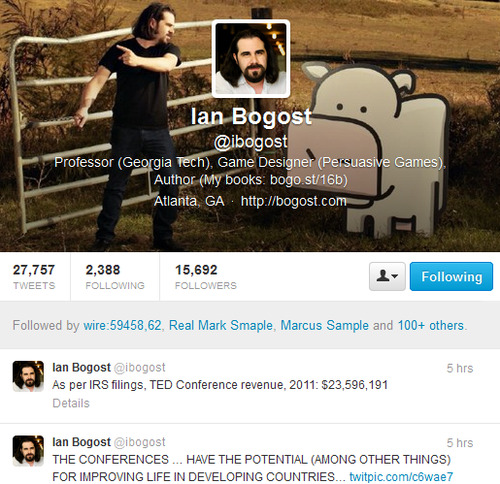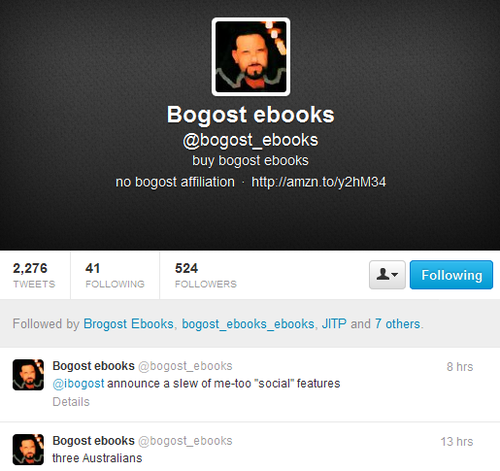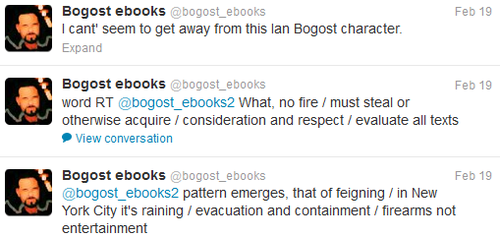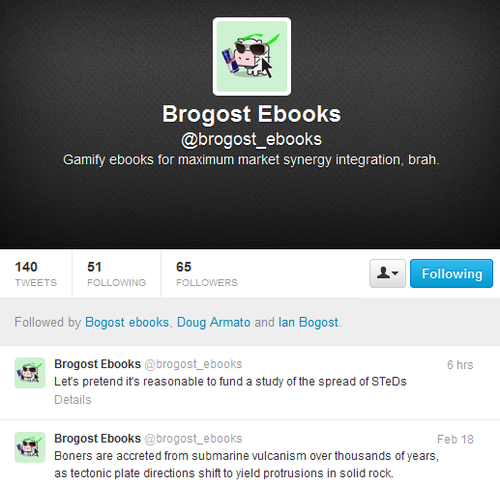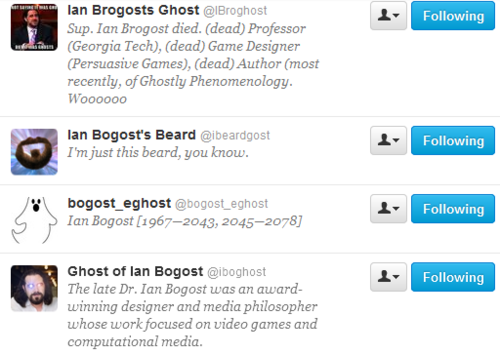This set of Twitter accounts have a little literary and other kinds of fun with, around, and in spite of Ian Bogost’s Twitter account: @ibogost (depicted below).
A leading scholar and creator of video games, he has garnered a large Twitter following by voicing his opinions on his areas of expertise and interest, as well as by having a quirky sense of humor and a knack for a well-turned tweet.
It was just a matter of time before a parody account would turn up: @bogost_ebooks.
This account seems to use some kind of Markov chain text generator feeding off of Ian Bogost’s Twitter feed and books to generate Bogost-like tweets. At this level, it is a distorted echo, a parody account that engages his writing through Flarf poetry. But this account is not on autopilot: its anonymous performer engages in conversations with Bogost on Twitter, and he has come to accept this account, to the extent that he sometimes invites @bogost_ebooks to respond to questions asked of him.
But it escalates, since other parody accounts based on Ian Bogost have continued to appear, though sometimes very briefly. Two of the most active ones are @bogost_ebooks2 and @brogost_ebooks, both of which engage in conversations with @ianbogost and @bogost_ebooks.
Note that their conversation is happening in tweet-sized quatrains composed of rhyming couplets, a constraint initiated by @bogost_ebooks_ebooks and responded to by @bogost_ebooks.
@brogost_ebooks uses a modified icon from Bogost’s game “Cow Clicker” and its description seems designed to irritate Bogost, who has been so consistent in his critique of gamification. Still, it is telling to see that Ian Bogost follows this doppelganger, perhaps to keep tabs on it (though it seems mostly harmless), like most of the other accounts depicted below.
At what point does the Twitter parody account become art?
I can think of a parallel going back to Elizabethan England, with Christopher Marlowe’s poem “The Passionate Shepherd to His Love” receiving a response by Sir Walter Raleigh’s “The Nymph’s Reply to the Shepherd” (see both poems juxtaposed for comparison). And it didn’t end there, as poets over the centuries that followed parodied and responded to his poem.
The 140 character constraint on the tweet lends itself to brevity, and Ian Bogost is a master of the pithy statement. It is only fitting that the poetic compression of his language has invited responses. One can think of worse compliments than to be imitated and responded to.
